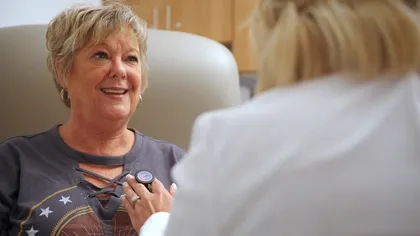Chemotherapy
What is chemotherapy?
Chemotherapy refers to the use of strong medicines to treat cancer. You may hear it called simply "chemo." It has been used for many years and is one of the most common treatments for cancer. In most cases, chemo damages the cancer cell's ability to grow and spread. Different groups of medicines work in different ways to fight cancer.
Chemo may be used alone for some types of cancer. Or it may be given with other treatments such as radiation or surgery. Chemo may also be used along with other cancer medicine treatments, like targeted therapy, hormone therapy, or immunotherapy. Often, a combination of chemo medicines is used to treat a certain type of cancer. These combinations are given in a specific order.
Chemo can work well to treat certain cancers. But chemotherapy medicines can travel to all parts of the body, not just the cancer cells. So, healthy cells can be damaged, too. This can lead to side effects during treatment. Knowing what these side effects are and that they can happen can help you and your caregivers prepare for and manage them.
When is chemo used?
Your healthcare provider may suggest chemo for any of these reasons:
-
Before surgery or radiation. It helps to shrink the tumor so that it's smaller and easier to take out or treat with radiation. This is called neoadjuvant chemotherapy.
-
After surgery or radiation. It helps keep any cancer cells that are left from growing and spreading. This is called adjuvant chemotherapy. Whether your healthcare provider suggests it depends on the tumor's size, if it has spread and other features.
-
When the cancer has spread to other parts of your body. Because chemo travels throughout the body to kill cancer cells, it can be used to kill cancer cells that have spread.
-
To ease problems caused by the cancer. The chemo isn't expected to cure the cancer, but can ease problems. For example, it may shrink a tumor that's pressing on a nerve and causing pain. This is called supportive or palliative care.









